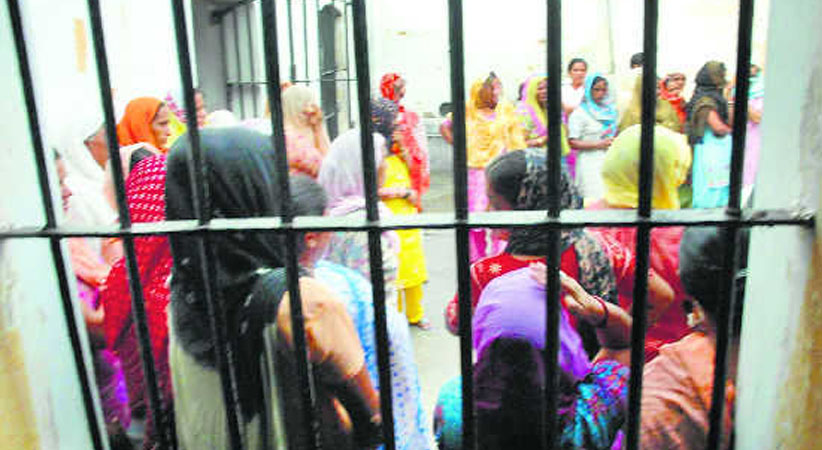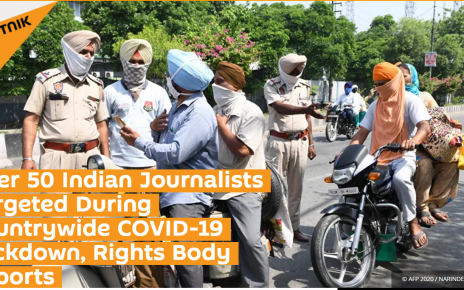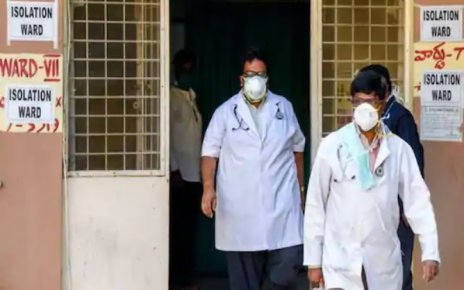The Tribune
Published on 28 July 2019
On an average, five Indians died in custody every day between April 2017 and February 2018, a report claims
The death in custody on July 21 of Amritsar-based importer Gurpinder Singh (29), a key accused in last month’s 532-kg record heroin haul at the Wagah-Attari border, has once again brought to the fore India’s notorious track record in custodial deaths, which includes cases of both police and judicial (in jail) custody.
In March 2013, Nirbhaya gang-rape accused Ram Singh (35) died under mysterious circumstances in Tihar jail. He allegedly hanged himself from the cell’s ceiling using a rope. Even biscuit tycoon Rajan Pillai died under mysterious circumstances in the same jail in July 1995, but the jail authorities had then attributed his death to liver cirrhosis.
In October 2009, Ghaziabad PF scam main accused Ashutosh Asthana died under mysterious circumstances in Dasna jail, near Ghaziabad. In another such case in Uttar Pradesh, Lucknow Deputy Chief Medical Officer Dr YS Sachan, who was an accused in the murder of two chief medical officers, was found dead in a toilet in Lucknow jail in June 2011. It was alleged that these deaths had a connection with the National Rural Health Mission scam.
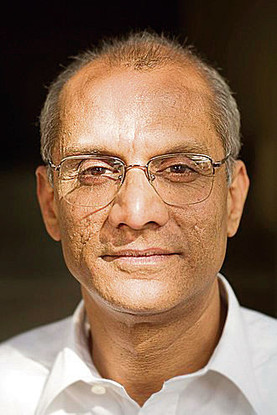
In the case of Gurpinder, Gonsalves said the prime witness in the drug haul case had been ‘eliminated’. “Now somebody should approach the courts and demand a CBI inquiry. In fact, under the law, such cases should not be investigated by an Executive Magistrate, rather by a Judicial Magistrate First Class. The government of Punjab should immediately order such an inquiry. The bogus story of police and jail authorities must be challenged,” he insisted.
According to the Ministry of Home Affairs (MHA) data, 1,616 persons died in judicial custody during 2016-17 and 145 in police custody. The figure for 2017-18 was 1,530 and 144, respectively.
Analysing figures presented by the MHA, Delhi-based Asian Centre for Human Rights (ACHR), in one of its recent reports, claimed that on an average, five Indians died in custody every day between April 2017 and February 2018. In the report titled “Torture Update India”, released late last year, the ACHR said, 1,674 custodial deaths (1,530 in judicial and 144 in police custody) occurred between April 2017 and February 2018. The figure was higher than the average of four custodial deaths a day from 2001 to 2010.
It is surprising to note, however, that defying popular perception, insurgency-hit states like Jammu and Kashmir and Meghalaya (four such deaths each), Mizoram (three), Manipur and Nagaland (two each) reported considerably lower number of custodial deaths. But still, these deaths pose serious questions about the manner in which the police in India deal with civilians in custody — police or judicial.
Lamenting that fixing responsibility is a “far cry in India”, Director of Rights Risk Analysis Group Suhas Chakma said the issue of “custodial deaths can’t be addressed unless we make the police and jail system accountable”. He added, “Our study shows that in almost all such death cases, no one is held accountable and they certainly are murders, but no one is punished for the crimes.”
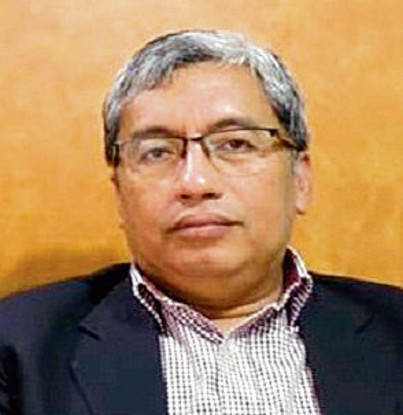
Chakma said, “To curb the disturbing trend of custodial deaths, you need to create fear among those who deal with jail inmates and persons in custody. I appeal to the government to frame a law against torture in custody and provide penal provisions, otherwise you can’t deal with such cases.”
The National Human Rights Commission has issued certain guidelines to deal with custodial deaths, but its intervention rarely goes beyond the routine issuance of notice and order for compensation to the affected family, leading to a culture of impunity.
Chakma said that despite India signing the UN Convention Against Torture and Other Cruel, Inhuman or Degrading Treatment or Punishment (UNCAT) in 1997, the country has not ratified it.
Incidentally, the absence of a law against torture has also given a handle to fugitive offenders such as Vijay Mallya, Purulia arms-dropping case accused Kim Davy and others to frustrate Indian agencies’ attempts to extradite them to face the law.
In 2017, the Law Commission had submitted its 273rd report on the “Implementation of United Nations Convention against Torture and other Cruel, Inhuman and Degrading Treatment or Punishment” to the government along with a draft “The Prevention of Torture Bill, 2017”.
Chakma expressed hope that the present government, which is aggressive in making laws against terrorism by amending several of the existing laws, will also take up the issue on priority.
